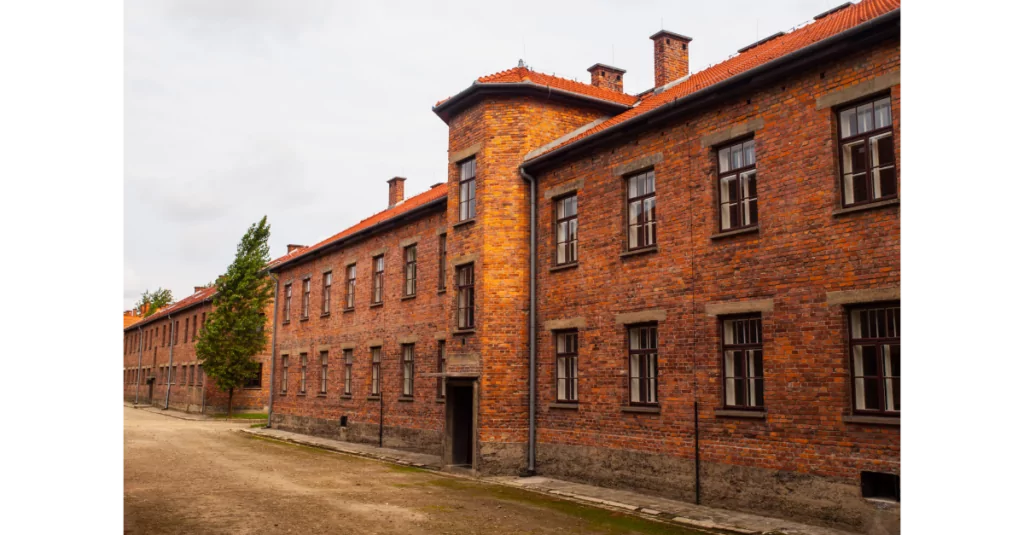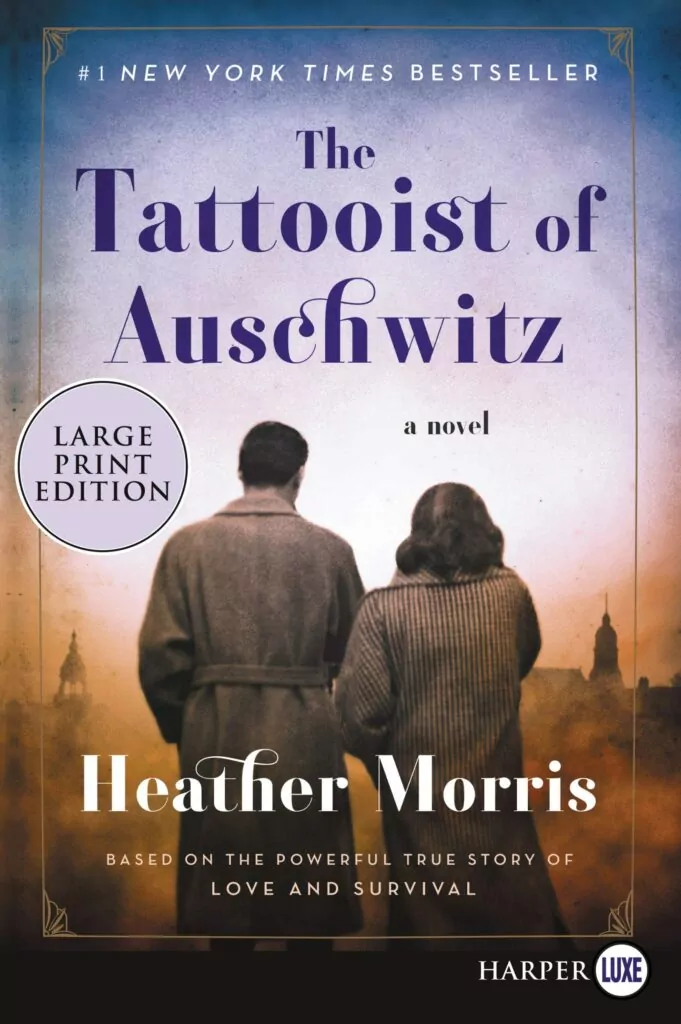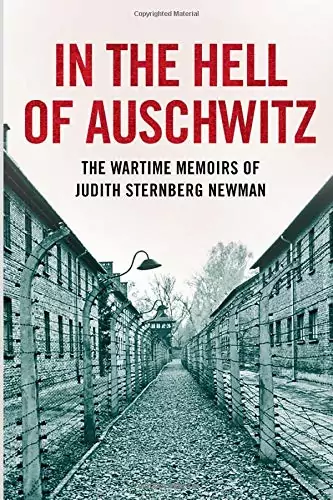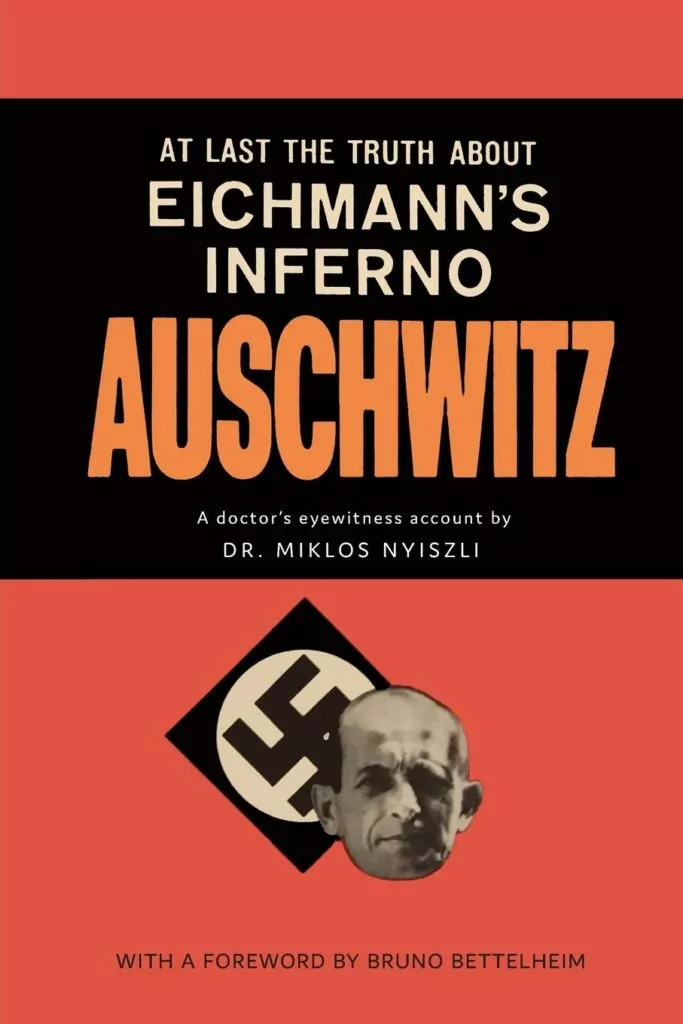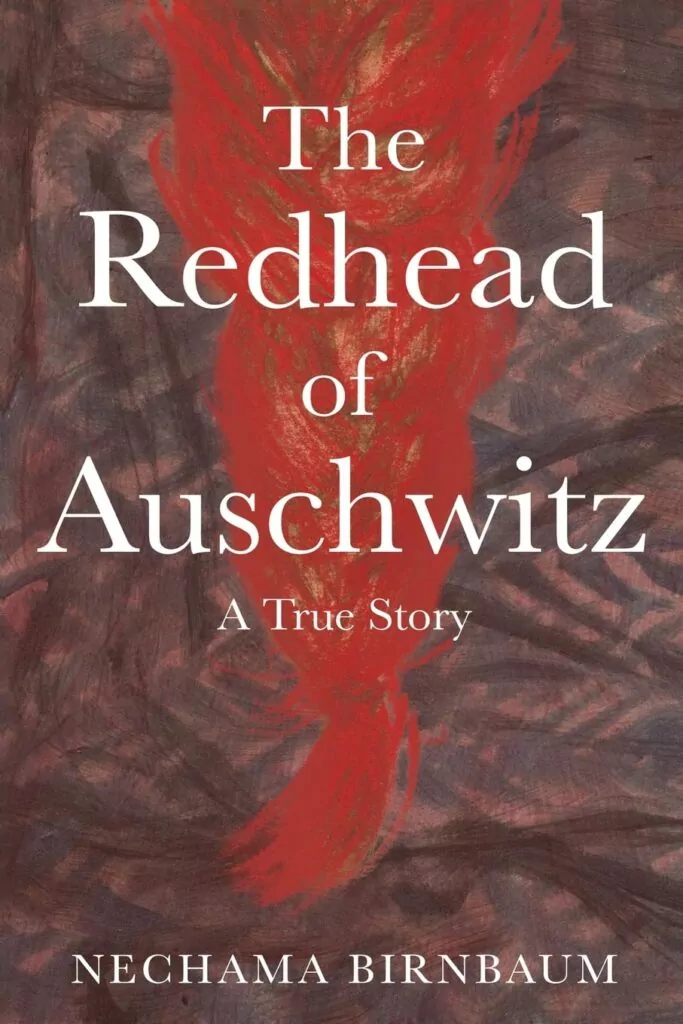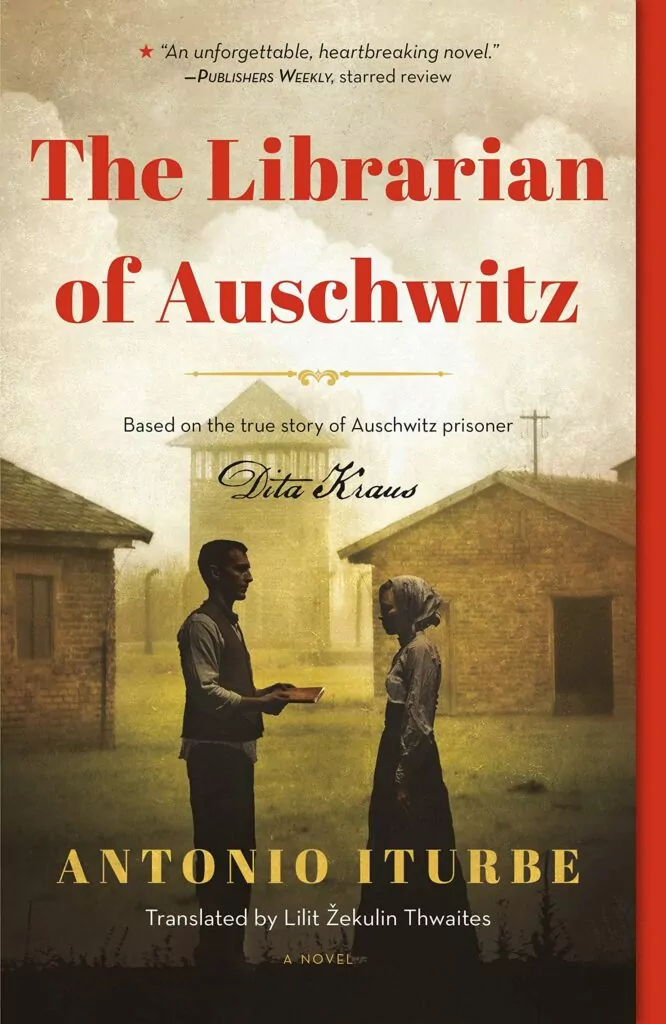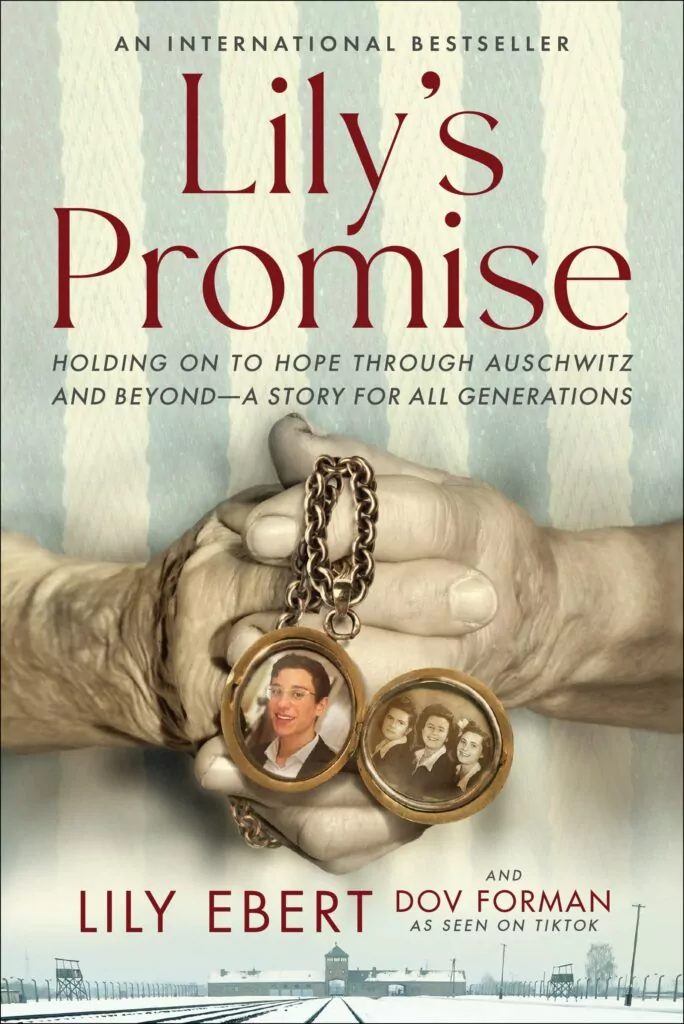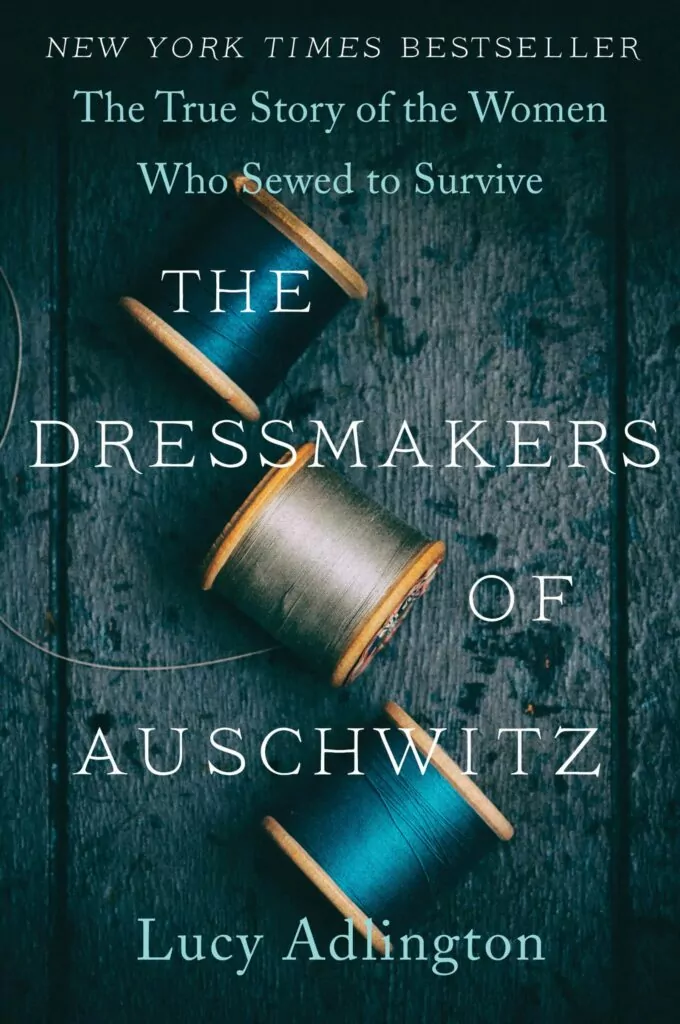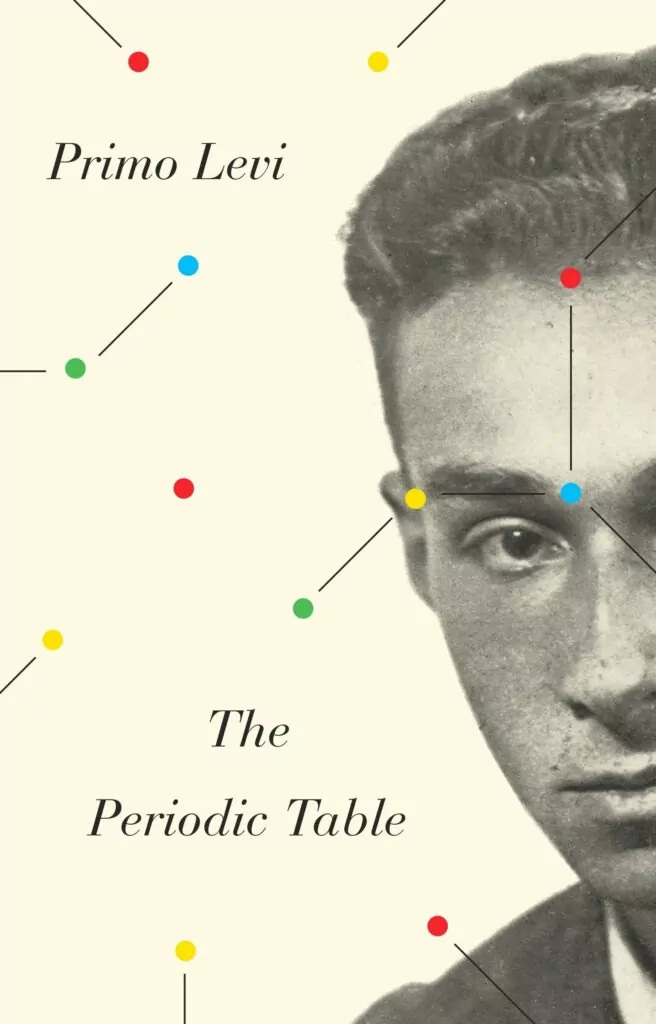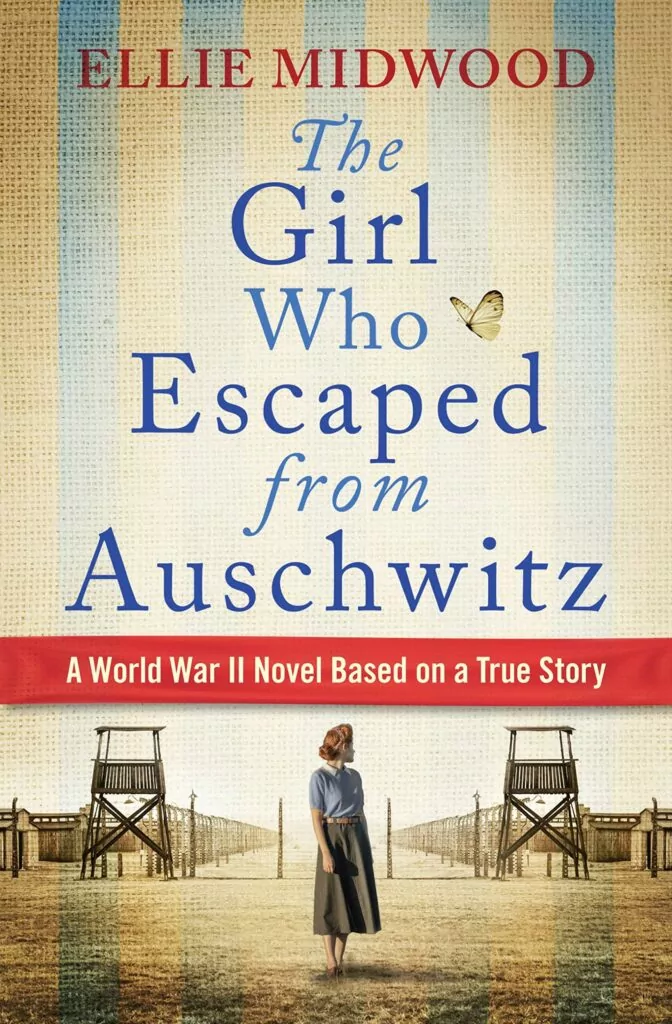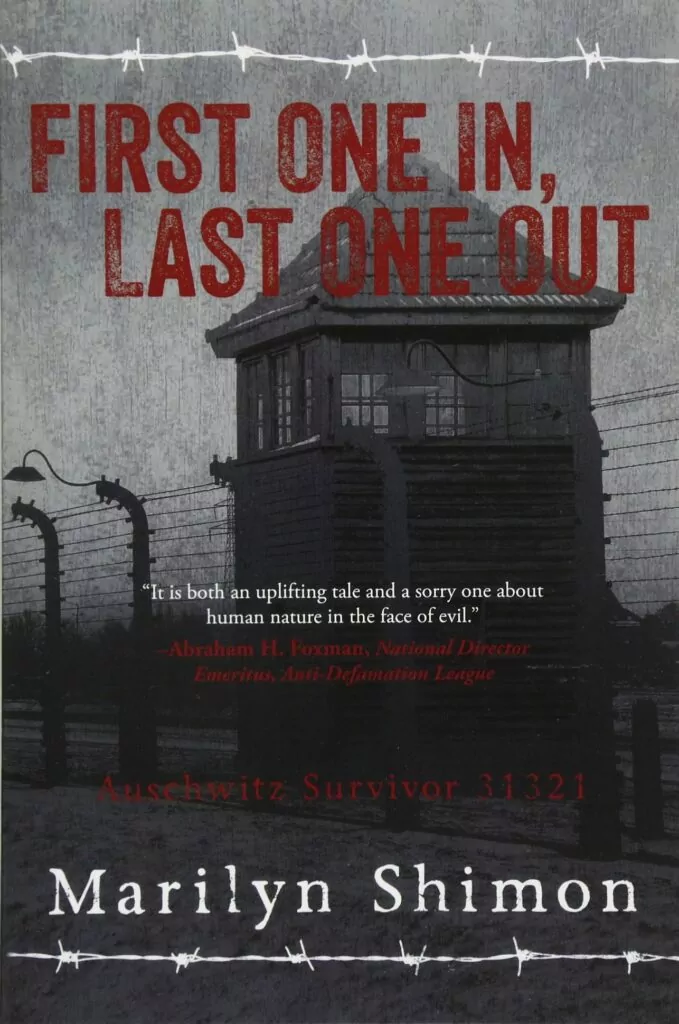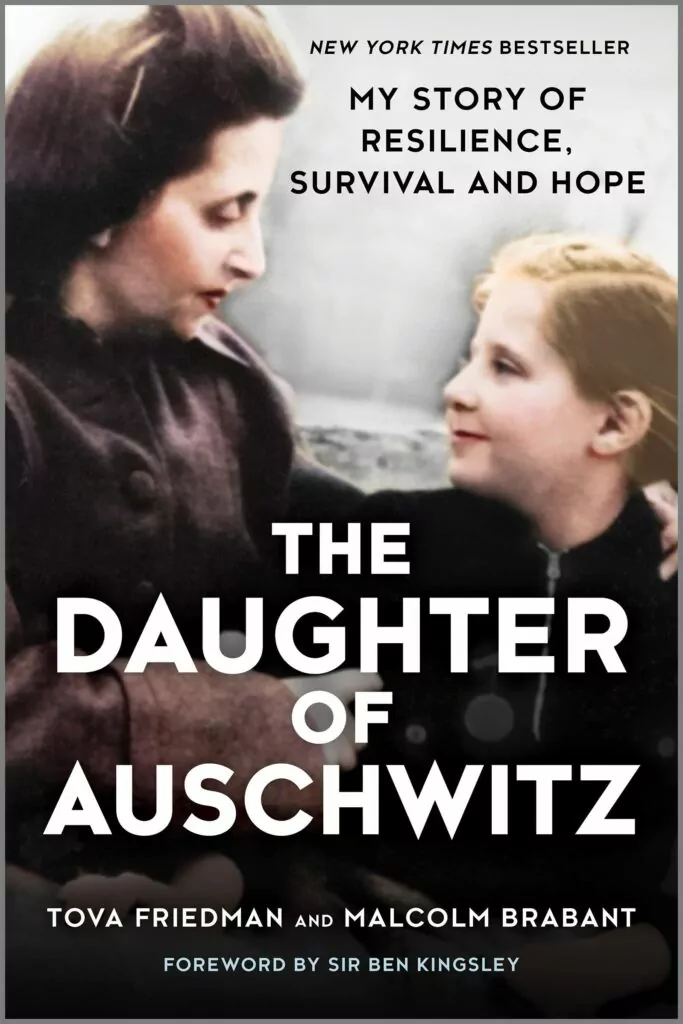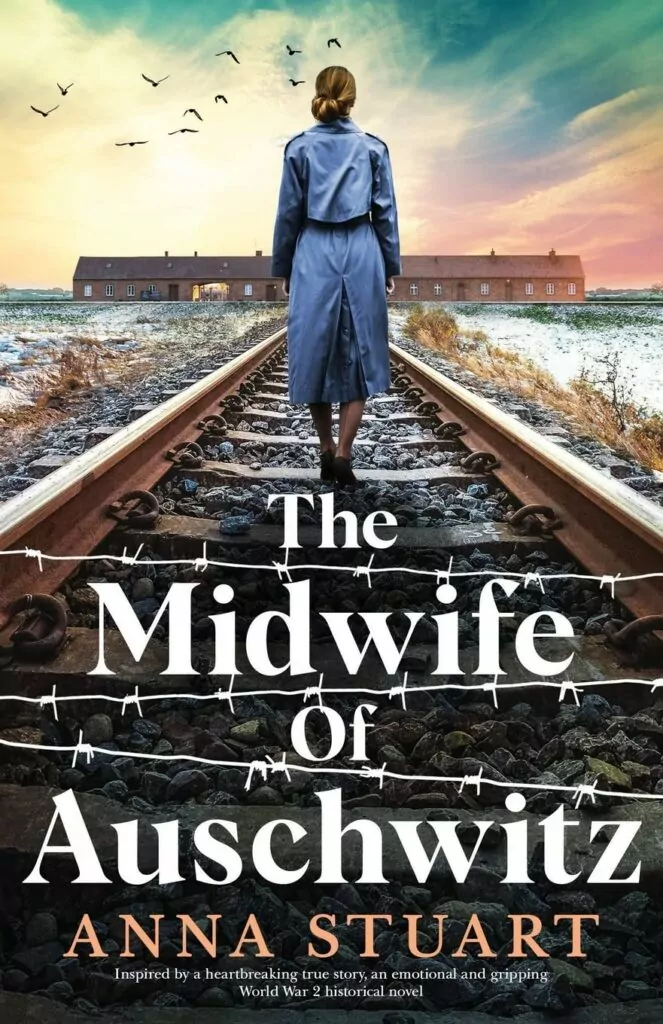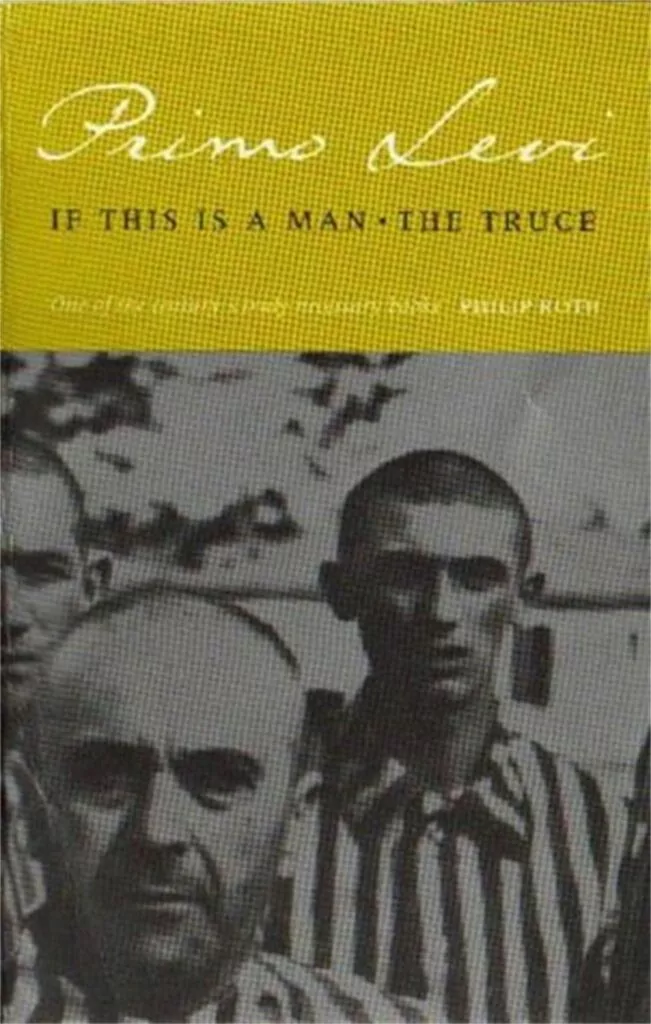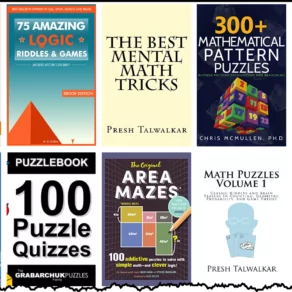The Holocaust marks one of the darkest periods in human history. Millions of people were killed because of their race. Besides being a tragic and devastating event, the Holocaust is also a reminder of the cruelty and evil that besides deep within certain people and only waits for the right moment to come to the surface and be translated into horrendous acts.
Auschwitz. Photo: Canva
I have read a number of Holocaust memoirs from people who were lucky enough to survive the horrors of Auschwitz concentration camp. I have been deeply touched by their stories and I can only imagine the pain and suffering that befall millions of people including children and the elderly at the hands of their Nazi monsters.
To help in the efforts to immortalize this tragic event and educate our kids and students on the horrors that happened during that dark period, I debuted a series dedicated entirely to the Holocaust.
In it I featured a wide variety of educational resources including Holocaust fiction novels, Holocaust memoirs, Holocaust nonfiction books, Holocaust books for kids, among other resources.
In this post, I share with you this collection of the best books about Auschwitz concentration Camp that will provide you with a unique insight into the horrors that occurred during this time, as well as powerful stories of courage and hope in the face of unspeakable tragedy.
Also in this Holocaust series:
- Best Holocaust books for kids
- Best Holocaust memoirs
- Best novels about the Holocaust
- Best nonfiction Holocaust books
Books about Auschwitz Concentration Camp
Here are our top picks for books about Auschwitz concentration camp:
1. The Tattooist of Auschwitz: A Novel, by Heather Morris
The Tattooist of Auschwitz, by Heather Morris, is a powerful and moving story about the Holocaust. It tells the story of Lale Sokolov, a Slovakian Jew who is sent to the concentration camps at Auschwitz-Birkenau in April 1942.
There, he is put to work as a Tätowierer, tasked with permanently marking his fellow prisoners. In the midst of horror and despair, Lale finds love with a woman named Gita, and they vow to survive the camp together.
2. In the Hell of Auschwitz: The Wartime Memoirs of Judith Sternberg Newman, by Judith Sterberg Newman
In her book, In the Hell of Auschwitz, Judith Sternberg Newman recounts her experience of surviving the Nazi concentration camp during World War II. She and her family had been living in Breslau when they were rounded up by the Nazis and sent to Auschwitz. Out of her entire family, she was the only one to survive.
Throughout her memoir, Sternberg Newman recounts her harrowing experiences of being in a concentration camp and facing death many times. She also writes about moments when she was unexpectedly spared from the gas chambers due to small miracles that occurred around her.
In the Hell of Auschwitz is an important book that sheds light on the horrors of Nazi Germany during World War II. Judith Sternberg Newman was one of few survivors who were able to tell their stories and it is an invaluable source of information about this dark period in history.
3. Auschwitz: A Doctor’s Eyewitness Account, by Miklos Nyiszli
Auschwitz: A Doctor’s Eyewitness Account is a harrowing account of Miklos Nyiszli’s experience in Auschwitz, the most infamous Nazi concentration camp. When Hungary was invaded in 1944, Nyiszli and his family were separated and he was chosen to carry out horrific “scientific research” experiments on prisoners dead and alive.
Fortunately, Nyiszli survived his experience and wrote this heartbreaking chronicle of Auschwitz. The book is an important resource for understanding the horrors that took place in the Nazi concentration camp, as it provides a first-hand account of what occurred there.
It is an incredibly powerful and emotional story that offers a unique perspective on one of history’s darkest moments. This book is a must-read for anyone looking to gain insight into the events of the Holocaust and to understand the inhumanity that occurred in Auschwitz.
4. The Redhead of Auschwitz: A True Story, by Nechama Birnbaum
The Redhead of Auschwitz by Nechama Birnbaum, is a powerful biography about a young girl named Rosie who was forced out of her home in 1944 and sent to Auschwitz.
Despite the odds stacked against her, Rosie summoned all of her courage and strength to survive death camps and death marches with the hope of one day seeing her family again.
This inspiring story not only tells of Rosie’s courage, but it also celebrates the strength of the human spirit and belief in oneself no matter what obstacles are faced. It reveals the intricacies of the Jewish culture and how love, faith, and resilience can triumph over hatred and despair.
5. The Librarian of Auschwitz, by Antonio Iturbe
The Librarian of Auschwitz by Antonio Iturbe is a tale of courage and hope set during the darkest chapter in history. The story follows Dita, a young girl who is taken from her home in Prague in 1939 and imprisoned in Auschwitz by the Nazis.
Despite the terror she faces, Dita finds strength and courage to persevere. When Jewish leader Fredy Hirsch entrusts her with eight precious volumes, she takes on the responsibility of becoming the librarian of Auschwitz.
Through Dita’s story, readers are reminded that even in unimaginably difficult times, hope can still be found in the most unlikely places.
With great resilience and courage, Dita manages to keep the eight precious volumes safe, and through her actions she is able to bring a sense of normalcy and hope to her fellow prisoners.
The Librarian of Auschwitz by Antonio Iturbe is a powerful reminder that even in the darkest chapters in history, courage and strength can still prevail.
6. Lily’s Promise: Holding On to Hope Through Auschwitz and Beyond, by Lily Ebert, Dov Forman
Lily Ebert is a remarkable 98-year-old woman and recent TikTok sensation whose experiences as a prisoner in the Auschwitz concentration camp during World War II are recounted in her memoir, Lily’s Promise.
In it, she writes about her happy childhood in Hungary and the horror of arriving in Auschwitz with her mother and siblings—two of whom perished soon after.
She also describes her determination to keep her two remaining sisters safe during their time there, as well as the inhumanity that she experienced at the camp.
Lily was able to build a new life for herself and family after surviving Auschwitz, first in Israel and then in London. Her story is a powerful reminder of the strength of the human spirit, even when faced with unimaginable hardship.
Throughout her memoir, she stresses the importance of never forgetting our stories and keeping them alive for future generations—a message that is echoed by her eighteen-year-old great-grandson Dov Forman, who helps her to share her story on TikTok.
7. The Dressmakers of Auschwitz: The True Story of the Women Who Sewed to Survive, by Lucy Adlington
The Dressmakers of Auschwitz by Lucy Adlington is a story about twenty-five young female inmates in the infamous concentration camp, Auschwitz-Birkenau.
They were selected to create, design and sew beautiful outfits for Nazi women as part of the Upper Tailoring Studio, established by the camp commandant’s wife, Hedwig Höss.
As they worked to produce high-quality clothing for SS social functions and ladies from Nazi Berlin’s upper crust, their hope was that these garments would save them from being sent to the gas chambers and provide a way of survival within the concentration camp.
Adlington’s research for this book was based on a variety of sources, including interviews with the last surviving seamstress.
Through her work, she allows readers to see how these women were able to use their bonds of family and friendship to endure persecution and be actively engaged in camp resistance. Beyond that, Adlington shines light on the greed, cruelty and hypocrisy of the Third Reich.
8. The Periodic Table, by Primo Levi
The Periodic Table, by Primo Levi, is a memoir of the years before and after his deportation to Auschwitz during World War II. It recounts the story of Levi’s Piedmontese Jewish community, his life as a student and chemist in the early stages of the war, and his exploration into the nature of matter.
Beyond being a vivid reminder of the Holocaust, Levi’s work is also a celebration of relationships, love and friendship, and is an inspiring testament to the power of resilience and endurance in the face of adversity.
9. The Girl Who Escaped from Auschwitz, by Ellie Midwood
The Girl Who Escaped from Auschwitz, by Ellie Midwood, is a story of courage, determination and hope in the face of a seemingly insurmountable situation.
Mala and Edward are two inmates at Auschwitz—Mala as an interpreter for the SS, smuggling scraps of food to the desperate prisoners; and Edward as a political prisoner in the underground Resistance.
Together, they make a promise to escape or die together and so begins their journey of faith and courage. The story is set in a time of fear and despair, but Mala and Edward refuse to give up hope. As they travel through harsh conditions in search of freedom, their strength and love for one another never falters.
Ultimately, they reach their goal of freedom and are able to tell their story of courage and resilience to the world. The Girl Who Escaped from Auschwitz is a powerful story that serves as a reminder of what can be accomplished when courage and determination are combined with love and hope.
10. First One In, Last One Out: Auschwitz Survivor, by Marilyn Shimon
First One In, Last One Out by Marilyn Shimon, is an emotionally powerful memoir of one man’s experiences during the Holocaust. Murray Scheinberg was one of the first eight men to enter Auschwitz in 1940, and one of the last to escape Dachau.
Through vivid and harrowing accounts, Marilyn Shimon recounts her uncle’s stories of survival, his courage and will to live in the face of unimaginable horrors, as well as the degradation that was imposed on Jews all over Europe.
This story brings to light many forgotten details, including Murray’s strength and determination despite experiencing great suffering at the hands of Nazi brutality.
11. The Daughter of Auschwitz, by Tova Friedman
The Daughter of Auschwitz, by Tova Friedman, is a powerful story about one of the youngest survivors of the Nazi holocaust. Tova was just four years old when she and her parents were sent to a labour camp, and almost six when she and her mother were transported to the Birkenau extermination camp.
During her six months in Birkenau, Tova witnessed unspeakable horrors. Tova wrote The Daughter of Auschwitz to preserve the memories of the Holocaust for future generations. She recounts in vivid detail her own experiences as well as those of other survivors who were brutally murdered by the Nazis.
Written with Malcolm Brabant, a former BBC correspondent, The Daughter of Auschwitz is an emotionally powerful account of courage and perseverance in the face of extreme adversity.
12. The Midwife of Auschwitz, by Anna Stuart
The Midwife of Auschwitz, written by Anna Stuart, is a historical novel based on the heartbreaking true story of Anna Kaminski and Ester Pasternak.
They are pushed through the iron gates of Auschwitz together and Ana declares herself a midwife and Ester as her assistant. In this terrible heartache, there is a glimmer of hope.
The guards take the healthiest babies and place them with German families, so they will survive. Ana and Ester secretly tattoo the little ones with their mother’s numbers in the hopes of reuniting them one day.
As the war is nearly over, they try to hold on to hope in these perilous times. This novel is a touching story of faith, friendship and courage in the face of tragedy.
13. If This Is a Man/ The Truce, by Primo Levi
Primo Levi was a 20th century chemist who set out to remember, think about and make comprehensible the German hell on earth he experienced during World War II. His writing of the experience is notable for its moral stamina and intellectual pose.
In his works If This Is a Man, Levi captures both the unbearable realities and the exquisite beauty of the world. He was a “magically endearing man” who had an extraordinary capacity to enchant those around him.
His works stand as a testament to his strength, resilience and humanity in the face of extreme adversity. Primo Levi’s writing is both heartbreaking and life-affirming, giving readers insight into what it means to live through such atrocities and to find strength, hope and beauty in the aftermath.
Levi’s work remains relevant today, offering a powerful reminder of how delicate and precious life is. He was a man who truly understood the power of words, making his works essential reading for anyone interested in understanding the human capacity for both good and evil.
Conclusion
Wading through the thick darkness of history to shed light on one of its most horrific chapters isn’t an easy task. However, Auschwitz books like the ones I’ve featured in this post can offer us a necessary, if harrowing, education. Each of these works provides an intimate lens into the incomprehensible horrors of Auschwitz concentration camp, while also illuminating moments of resilience, love, and even hope amidst the despair. They’re vital tools for understanding the depth of human suffering that occurred, but also the heights of courage that some were able to summon.
The value of firsthand accounts like Miklos Nyiszli’s “Auschwitz: A Doctor’s Eyewitness Account” or Judith Sternberg Newman’s “In the Hell of Auschwitz” cannot be overstated. These memoirs offer an unfiltered view of the grim realities of concentration camps, something that’s critical for future generations to understand.
But there are also tales that convey endurance of the human spirit—stories like “The Librarian of Auschwitz” and “The Girl Who Escaped from Auschwitz” which show how even small acts of resistance and moments of hope can exist in the bleakest conditions.



